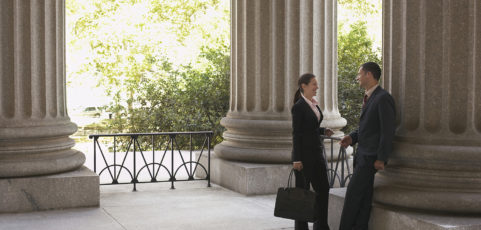There are a handful of legal doctrines that can be difficult to comprehend, but the law of the case doctrine shouldn’t be one of them. Yet, time and again, the doctrine seems to perplex litigants, especially when deciding whether it is binding or discretionary, and whether it has any application to a trial court’s own prior rulings. The answers to both of these questions are important to understand before asking a court to revisit a prior ruling.
The basic rule is this: a ruling or holding stated in an appellate court opinion is binding on all inferior courts in all subsequent proceedings related to the same parties in the same action. (Morohoshi v. Pacific Home (2004) 34 Cal.4th 482, 491.)









